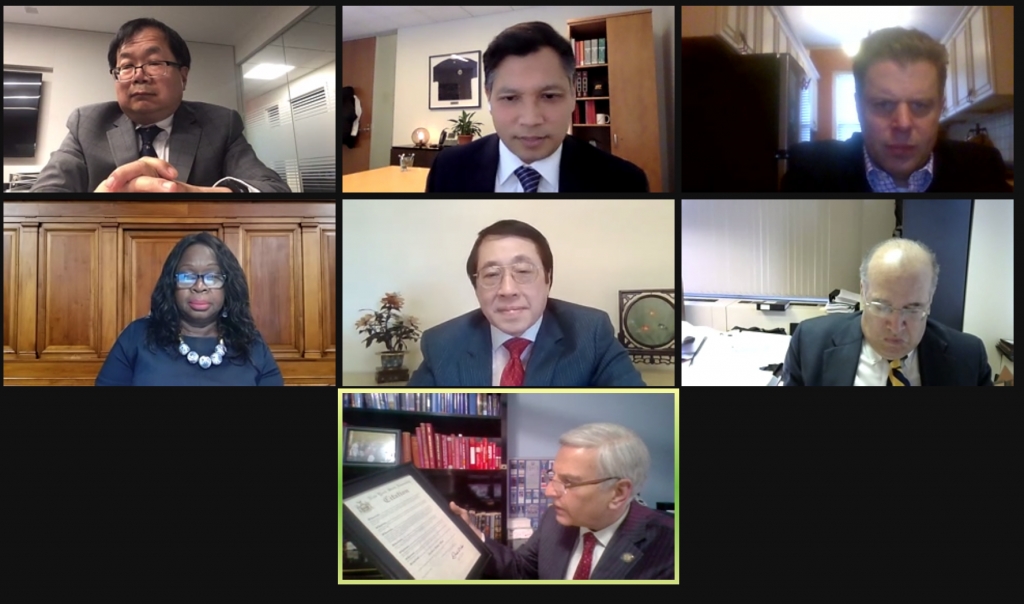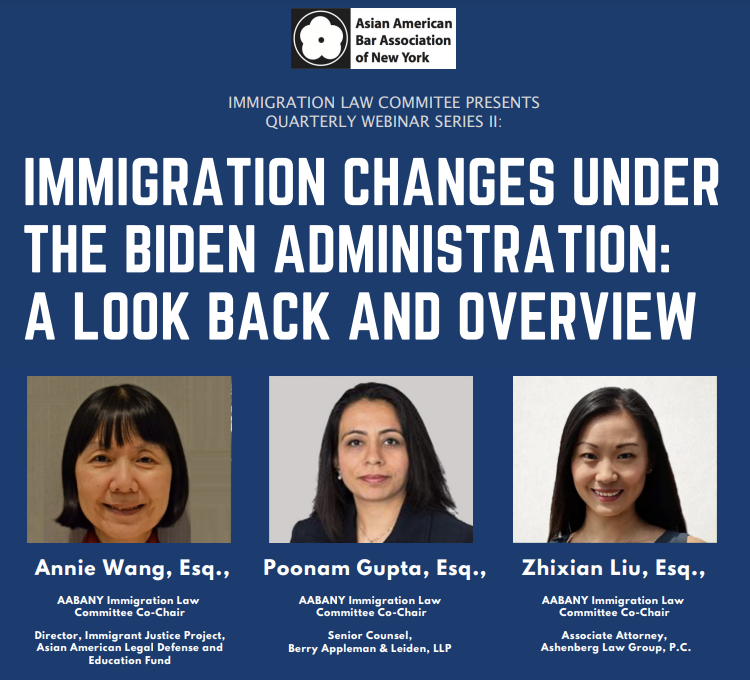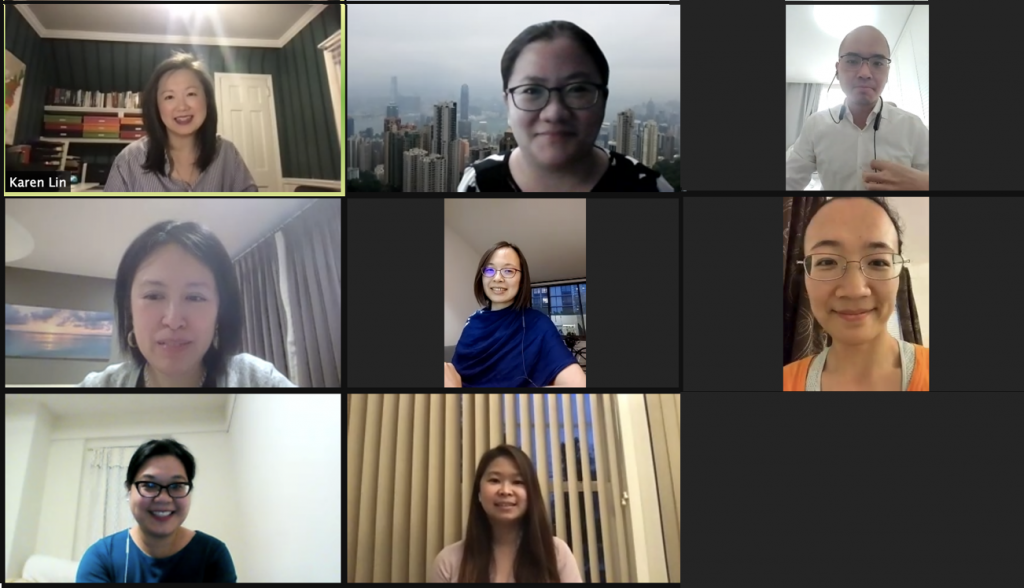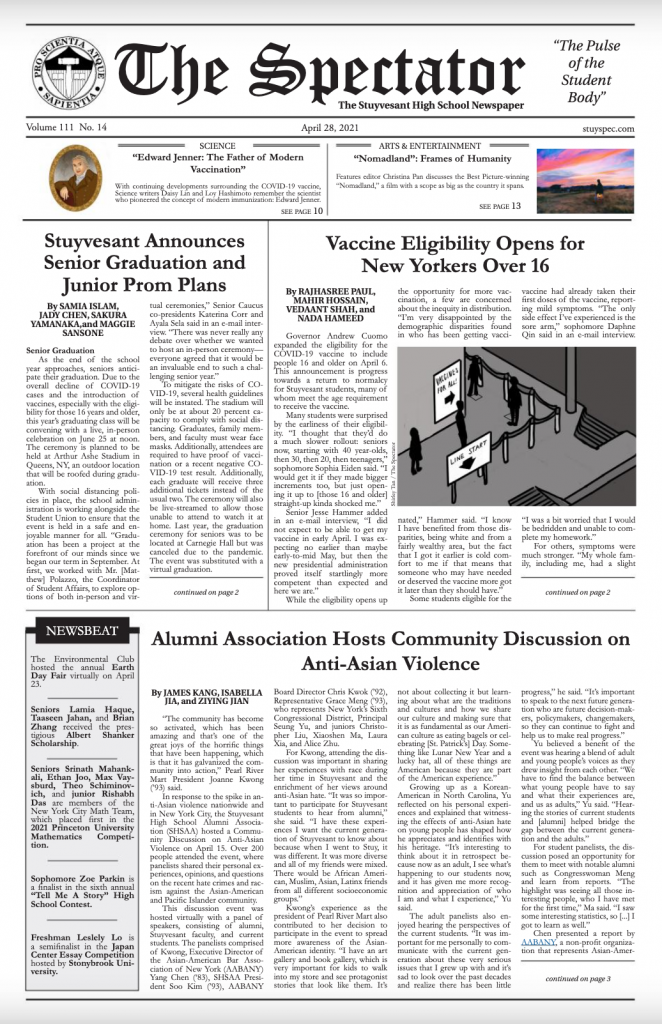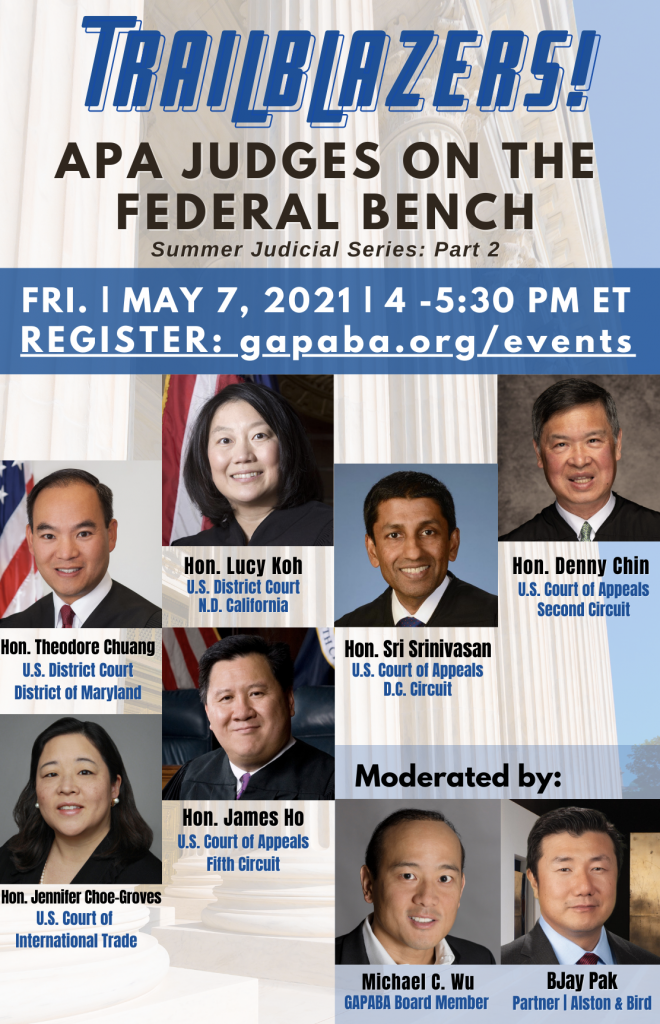
On May 7, AABANY co-sponsored a panel of Asian Pacific American judges as part two of NAPABA’s Summer Judicial Series. The event was hosted by the Georgia Asian Pacific American Bar Association (GAPABA) and the National Asian Pacific American Bar Association (NAPABA). In addition to AABANY, the event was co-sponsored by the Asian Pacific American Bar Association of the Greater Washington, D.C. Area (APABA-DC), the Asian Pacific American Bar Association Educational Fund (AEF), the National Asian Pacific American Law Student Association (NAPALSA), the South Asian Bar Association of North America (SABA), and the South Asian Bar Association of Georgia (SABA-GA).
In honor of Asian Pacific Islander Heritage Month as well as to encourage the growing number of young Asian American lawyers aspiring to the bench, GAPABA and NAPABA organized the panel to share the stories and careers of trailblazing APA judges. The panelists were AABANY member Hon. Denny Chin, of the U.S. Court of Appeals for the Second Circuit, Hon. James C. Ho of the U.S. Court of Appeals for the Fifth Circuit, Hon. Sri Srinivasan, Chief Judge of the U.S. Court of Appeals District of Columbia Circuit, Hon. Jennifer Choe-Groves of the U.S. Court of International Trade, Hon. Theodore D. Chuang, of the U.S. District Court for the District of Maryland, and Hon. Lucy H. Koh, of the U.S. District Court for the Northern District of California.
The panel was moderated by GAPABA Board Member Michael C. Wu and Byung Jin (BJay) Pak, Partner at Alston & Bird. GAPABA President and Of Counsel at Bryan Cave Leighton Paisner Angela Hsu, GAPABA President-Elect and Associate General Counsel at Delta Air Lines Timothy Wang, and GAPABA Communications Co-Chair and Law Clerk for the U.S. District Court for the Western District of Texas Prathyusha Chenji were also in attendance.
Michael and BJay posed several questions to the panelists regarding their backgrounds and experience on the bench. All of the panelists expressed how their upbringing in the U.S. made them keenly aware of their “otherness” and in some cases, motivated them towards public service. Judge Chin (a former AABANY President, 1992-93) shared his background as an immigrant from Hong Kong and his experience growing up in New York City. Judge Chin also noted that, as one of the few Asians in his school and at his work, he was constantly under scrutiny and pressure to perform well. “I felt like Yao Ming,” he stated. Several panelists also reported that they still faced microaggressions in their professional lives, despite their position as judges.
When asked about their career paths and perspectives on diversity on the bench, all of the panelists described varied experiences in private practice, the legislative branch, and executive branch of the government before becoming a federal judge. Many of the panelists also expressed how diversity in the federal government could only lead to better and more informed decisions on behalf of the American people. Many of the panelists also shared their own stories about how they were inspired and encouraged by seeing diverse individuals serving in government and in public positions. All of the judges expressed how the justice system in America ought to be color blind and that all individuals should have the right to a fair trial regardless of their background. Judge Chin also discussed the importance of community and unity despite having diverse perspectives. When asked to respond to Supreme Court Justices Neil M. Gorsuch and Sonia Sotomayor’s discussion on the threat of disunity to national security, Judge Chin concurred, pointing out how even after President Biden’s election, Americans have yet to listen to each other without politicizing every single issue.
The moderators then closed the panel with several questions about advice any of the judges might have for young attorneys, law clerks, and others aspiring to become judges themselves. The panelists expressed how being a judge begins with being a good attorney. All of the judges emphasized the importance of relationships and teamwork, of maintaining a good reputation, and of being respectful and professional to all.
AABANY thanks NAPABA for hosting this series and also thanks the justices for their trailblazing example to the APA community. To watch a recording of the event, click here.


